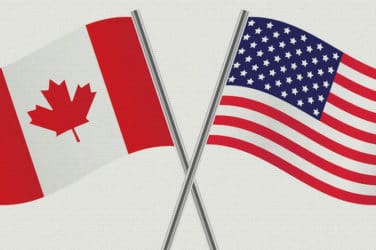
Volatility is affecting investors, and there’s no one anywhere in the globe that doesn’t feel it.
Market participants talk about volatility so often that investors may have become desensitized to the term. But, the key characteristic of volatility, which is to keep investors guessing at the market’s unpredictable wild swings, has kept the markets on its toes.
Investors continue to try to identify the source of volatility, as a means of discerning how to shield themselves from it.
“There are probably some good technical reasons for such extreme volatility including the advent of high frequency trading (HFT)” and the continued proliferation of ETFs (exchange traded funds) and if those are indeed the main culprits then we must all get accustomed to another (market) ‘new paradigm’”, said Paul Hechmer, founder and chief investment officer at del Rey Global Investors.
Despite new market entrants, Hechmer does not fear for the traditional mutual fund model—as long as firms are not “undisciplined about price.”
“If you’re less disciplined about price and valuations, HFTs shouldn’t impact you too much—just on your margins.”
For del Rey, a California-based fundamentally focused traditional buy side firm with north of $700 million, volatility has especially hit home because the firm makes almost entirely internationally-focused equity investments—mainly via its flagship fund, the Monarch Fund.
The Monarch fund’s top holdings span across Japan, the United Kingdom, Italy, Canada, China, and France. As international equity investing goes—both in the developed and emerging realm—managers benchmarking to the typical MSCI EAFE (Morgan Stanley Capital International Europe, Australasia, and Far East) Index, can expect volatility to spread from the index’s top holdings in financial services.
“We can also attribute much of the volatility simply to the composition of the indices to which many international investors are tethered,” said Hechmer. “Even after several years of miserable performance, the financial services sectors still remain, by a long shot, the largest single sector within the EAFE index.”
Furthermore, Hechmer noted that the highly leveraged nature of financial services—sometimes levered at ten or 20 times—will “result in usually uncertainty and volatility.”
“Expect more of the same going forward,” he added.
Top-down volatility will stem from Europe’s macroeconomic mess, namely a potential Greek departure from the Euro. Yet, like other long-only investors, Hechmer sees opportunity.
“Greece will slow things down for us, in regards to our European holdings, but if anything; its departure may open up opportunities. We use our bottom up methodology and note that companies will still keep doing business,” he said.
Rather than pinning all fears into Europe’s situation, Hechmer’s primary concern stem from a lack of diversity in certain regions–namely Canada.
“You’ve still got a really undiversified market in Canada,” he told Markets Media, citing Canada’s main industries as financial services, natural resources and materials. Yet every now and then, a true value opportunity comes across Hechmer’s eye.
“During the third quarter (of 2011), we resumed buying Canadian auto supplier, Magna International. It’s properly considered cyclical and likely will prove pretty high-beta. We expect over time for Magna to prove good investment, irrespective of the top down outcome in the economy,” Hechmer said.




